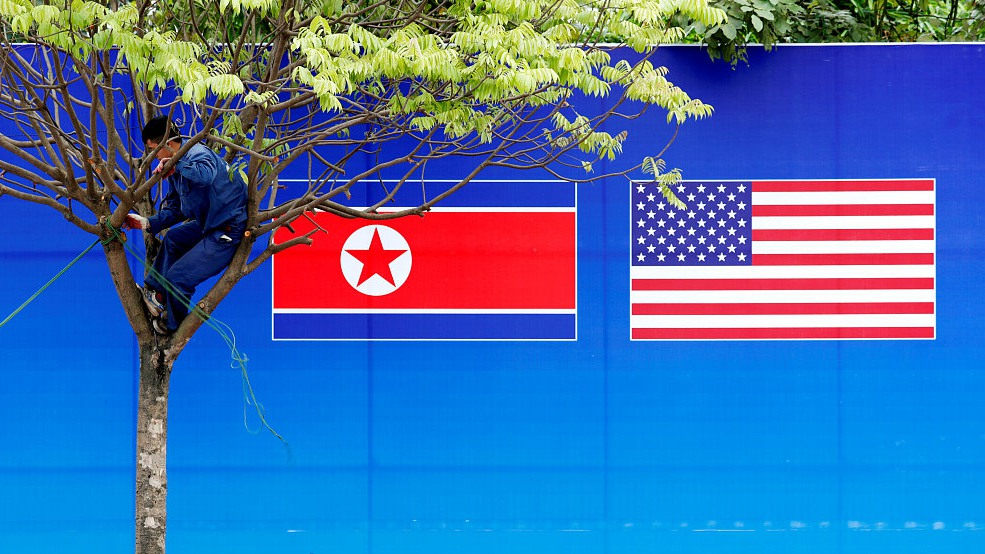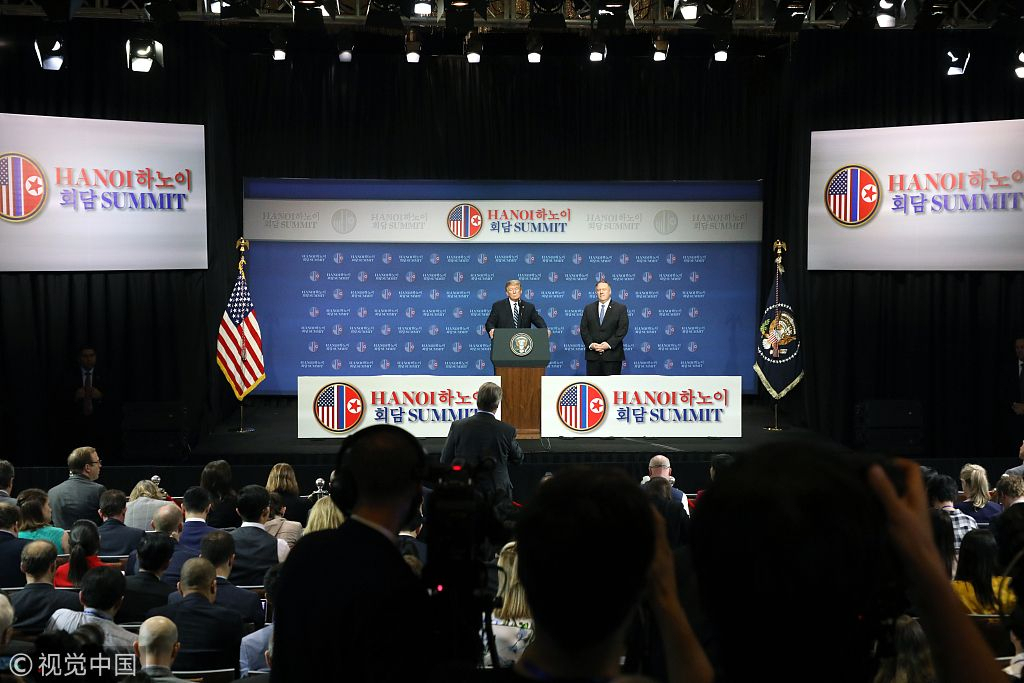
TV Show
10:28, 02-Mar-2019
No deal from Kim-Trump summit
The Heat
01:39

No deal.
The Kim-Trump Summit ended on February 28 without reaching an agreement. The talks broke down, and the signing ceremony was also canceled.President Trump said a disagreement over sanctions was the deal breaker.
"They wanted the sanctions lifted in their entirety, and we couldn't do that," said Trump in the presidential press conference.
The DPRK, however, is disputing Trump's explanation for why the summit in Hanoi collapsed. Pyongyang and Washington are clearly not on the same page.
CGTN's Sean Callebs hosts a panel of guests from Hanoi, Beijing, New York, and Washington DC to discuss where denuclearization and the two countries are going forward.
From Hanoi, Brian Becker says that the DPRK was willing to close its Yongbyon nuclear facilities and to have a permanent and enduring end to nuclear testing, but the U.S. wanted them to do more, which is the part that broke down the conversation.
In his opinion, the DPRK was not prepared for the additional demands from the U.S.
David Jonas argues the meeting was a win for Trump. Before, Kim might have thought that he could suggest any demands while Trump's focus is on denuclearization. He thinks that it was a correct thing to do for Trump to assert better deals, which still has set the possibility for new negotiations.

U.S. President Donald Trump during a news conference following his summit with DPRK leader Kim Jong Un in Hanoi, Vietnam, February 28, 2019. /VCG Photo
U.S. President Donald Trump during a news conference following his summit with DPRK leader Kim Jong Un in Hanoi, Vietnam, February 28, 2019. /VCG Photo
While China's Ministry of Foreign Affairs remains in pursuit for peace between the two countries, Victor Gao indicates that it is an expected outcome, because “the United States and DPRK governments cannot be further away in how they define denuclearization and how they define what steps will be needed to achieve denuclearization.” In his opinion, although the DPRK is willing to destroy its nuclear facilities, a complete denuclearization should include disposal of all the weapons and related materials.
Victor Gao thinks that an ongoing talks can help with it, yet a complete denuclearization will not happen. He feels that a better definition of denuclearization is important with bringing more parties and creating a better structure.
Myung-Koo kang, a professor of Political Science at Baruch College with New York's City University introduces that Japan and ROK, as the two other major players in Asia, have different perceptions towards the meeting and also different definitions of denuclearization. While the Korean Peninsula and nuclear are a multilateral issue, Myung-koo thinks that a multilateral approach is needed.
Becker is disappointed about the setback and stresses the insidious sanctions that have been depriving food and medicine to people in the DPRK, and it is not trying to have a nuclear war with the U.S. In his opinion, the U.S. missed a good deal after two summits, and that is due to a lack of will power in Washington.
However, Jonas believes that Trump is not walking away permanently. From his perspective, as the Kim family has always been played a game of nuclear negotiations, Trump should not fall into a trap.
He thinks it is right to make the sanctions stay in place and have concrete actions move forward. "Remember, they have probably gained what they need to know in their nuclear testing program so it's in many ways an easy give for them to stop the testing," says Jonas.
Disagreeing with Jonas, Myung urges Trump to talk to Congress to reach a reasonable consensus with the Democratic politicians as well.
"In terms of international pressure, I think U.S. government needs to talk with all governments, not only ROK, and in Japan and China", says Myung, "a more deliberative and cooperative corporation in the currently bilateral negotiation". In conclusion, he believes joint efforts with other foreign countries would help for more stable progress in the future.
The Heat with Anand Naidoo is a 30-minute political talk show on CGTN. It airs weekdays at 7:00 a.m. BJT and 6:00 p.m. Eastern in the United States.
(If you want to contribute and have specific expertise, please contact us at opinions@cgtn.com)

SITEMAP
Copyright © 2018 CGTN. Beijing ICP prepared NO.16065310-3
Copyright © 2018 CGTN. Beijing ICP prepared NO.16065310-3